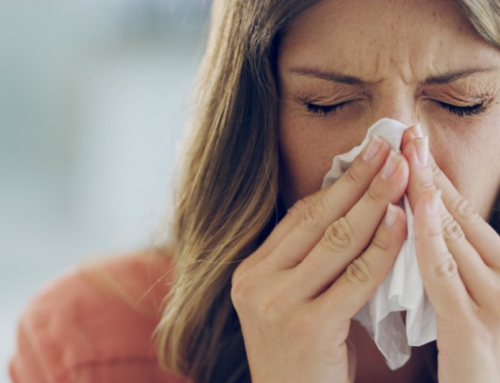CNNTÜRK – December 8, 2020
Eczema is an increasingly common skin disease. Many factors can cause eczema, especially on the hands. With the coronavirus epidemic, the use of hand sanitizers has increased tremendously.
Almost everyone started to use disinfectant or cologne to protect themselves from the virus. However, the chemical content of disinfectant and cologne can negatively affect those with eczema. Asthma and Allergy Association President Prof. Dr. Ahmet Akçay talked about the effect of intensive disinfectant use on people with eczema.
What are the causes of eczema on the hands?
Eczema is a skin condition that appears as dryness, scaling, cracking, sores, redness and itching on the skin. Especially in cold weather, the decrease in the moisture content of the skin increases the frequency of eczema. Hand eczema, which tends to be more common in people with an allergic predisposition; It can be caused by both genetic factors and contact allergens and irritants. Chemicals and irritants have the feature of triggering eczema on the hands. Among the irritants; detergents, acids, water, cold and friction. Eczema on the hands is not contagious, the eczema you have cannot be transmitted to others.
Intensive disinfectant use negatively affects eczema!
Hand disinfectants, which have recently become a part of our lives, are often preferred for personal hygiene. The intensive use of hand sanitizers also brings some problems. Intensive use of hand sanitizer, especially by people with eczema, can cause eczema flare-ups. Chemicals, which are among the biggest triggers of eczema, are heavily involved in disinfectants. Frequent use of these chemicals during the day can cause dryness and irritation even on skin that does not have eczema. In eczema, it is necessary to maintain the moisture of the skin. Since alcohol disinfectants have a drying effect on the skin, it is beneficial for people with eczema to use a moisturizer after using hand disinfectants.
Recommendations to prevent eczema on hands
It is of great importance to pay attention to hand hygiene in order to protect against the virus, especially recently, and it is recommended to wash hands constantly. Washing hands frequently can lead to negative situations in people with eczema. People with eczema should not wash their hands with very hot or very cold water. When washing your hands, you can choose soaps with moisturizing ingredients that are less irritating. Moisture under jewelry can exacerbate eczema. Take care to remove your jewelry while washing your hands. The best practice in the treatment of eczema is to moisturize the skin well after disinfectant application. In eczema, the skin barrier is broken and the skin cannot retain water. The barrier defect in the skin needs to be corrected. After washing your hands, dry them immediately and apply moisturizer. It is useful to pay attention to the fact that the moisturizers you use are natural and do not contain perfumes and parabens.
As a result;
* Eczema on the hands is a common skin condition.
* Disinfectants, which are used intensively for personal hygiene, can cause eczema on the hands to be adversely affected.
* Moisturizing the hands is extremely important in the prevention of eczema.
* In personal hygiene, it is necessary to avoid chemicals as much as possible.
*When using products such as soap and disinfectant, products with approved effectiveness and moisturizing properties should be preferred.






